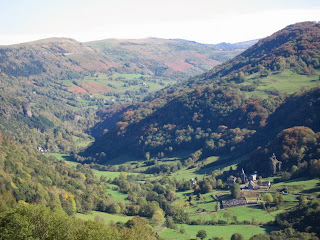I recently finished reading 1421, The Year China discovered the World,by Gavin Menzies and found it ...interesting. The thesis he proposes, that the Chinese surveyed the whole world in a relatively short period of time, with a huge fleet of ships, is presumably possible, but there seems to be not quite enough solid evidence to back it up as yet, despite the author's claims. I found his assertions about Chinese genes being found in a variety of populations in different parts of the world not entirely convincing, also his claims that certain diseases were brought to the places they visited by the Chinese also a bit suspect. The explanation of how the Chinese discovered, or worked out latitude was very interesting, however and as the current re-appraisal of the European "Dark Ages" shows, the study of the past is always turning up new ideas and facts.
One point really enraged me, almost to the point of tossing the book across the room.In the Epilogue,: the Chinese Legacy, on page 441 (paperback ed) he states"By the Tang dynasty (AD 616-907) at a time when our European ancestors were dressed in rags, rich Chinese were dining off gold plates....etc. Well, the Book of Kells was produced in AD 800 or slightly earlier; England was also producing many gold artefacts - Saxon hoards are still being turned up from this period (which admittedly was one of unrest in Britain and Europe, as various kings sought to establish supremacy) containing beautiful objects.Some people may have been dressed in rags, but I bet there were quite a few impoverished Chinese dressed the same way. In the latter part of the period the author says the Chinese were so superior to Europeans, English embroiderers were producing Opus Anglicanum, beautiful ecclesiastical embroidery, worked with precious metals, pearls and gemstones on silk or velvet. To dismiss the whole of European culture of the period in such an offhand way is not the remark of a true scholar. One of the questions which remains is : why did the mandarins destroy the reports and other evidence of these voyages? Could it perhaps have been because during their travels, the Chinese discovered other countries and places were as rich and powerful as they were, and their idea of bringing the whole world into their tribute system was an impossibility, and so was abandoned.
However, it made an interesting read over several days, and I might even read his follow-up book, 1434, which is about how China sparked the Renaissance in Europe, as I did an Open University year on Renaissance and Reformation as part of my (OU) degree a long time ago.








